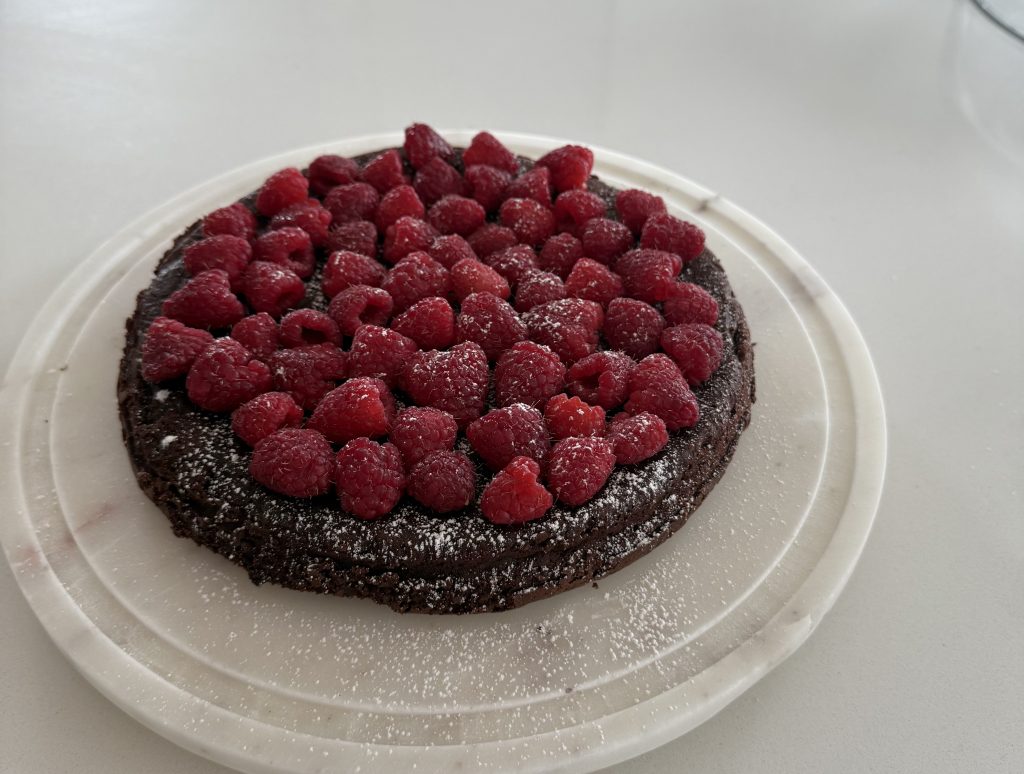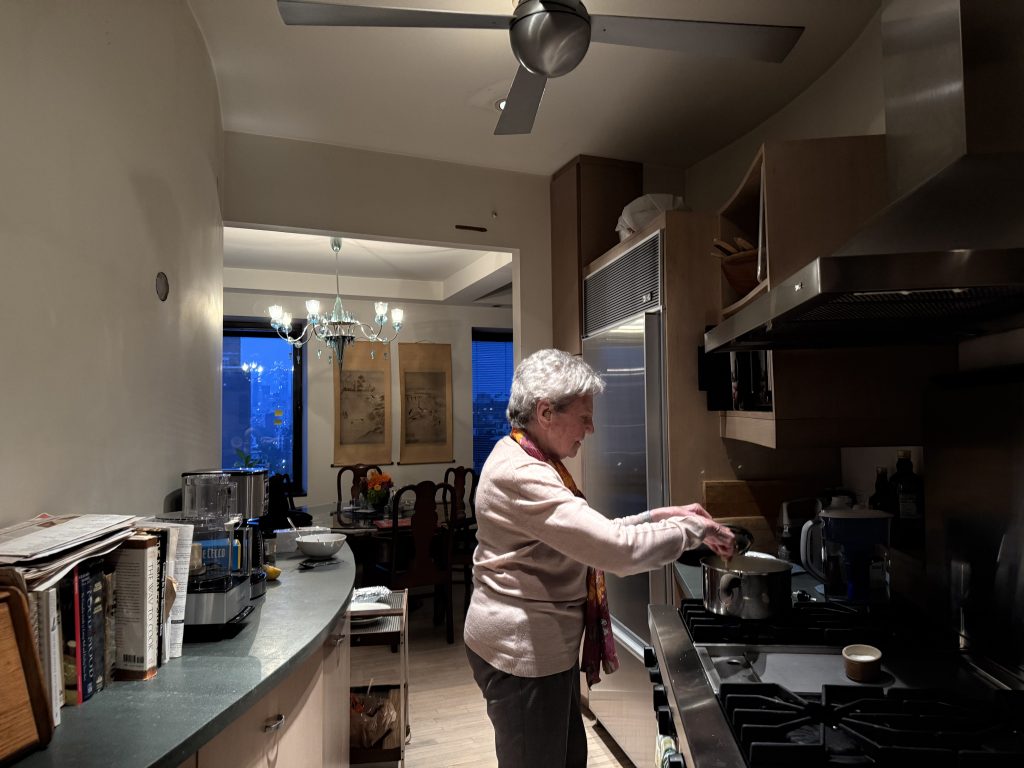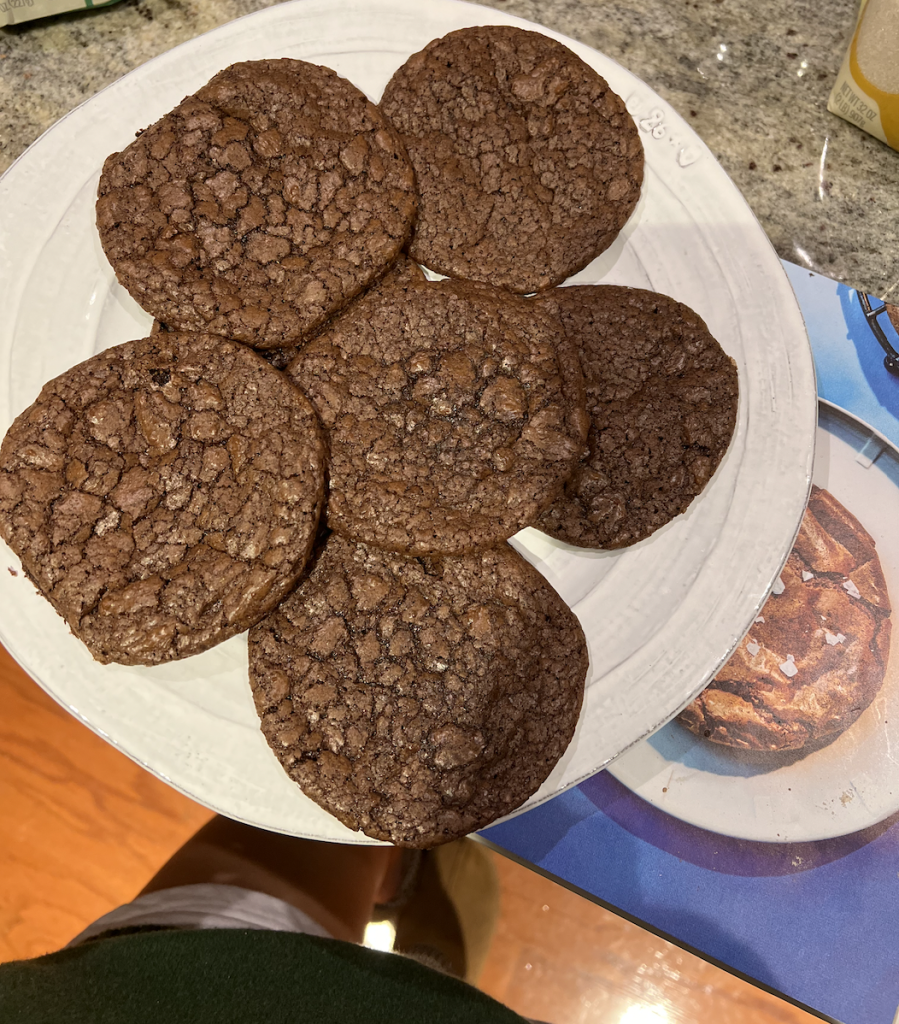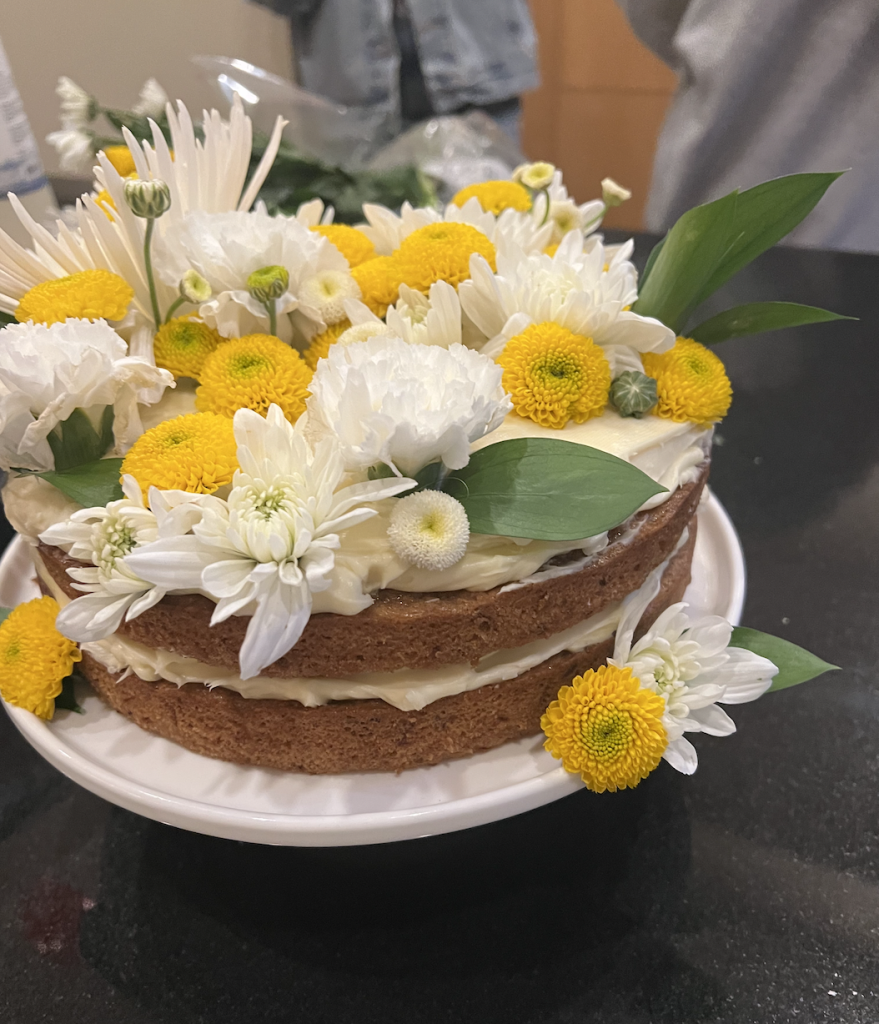
-
7:46 PM
j’adore le franglish content le code switching c’est tellement fun je sautille from a language to another like a gazelle et toi aussi tant que tu voudras
-
11:46 PM

I had the most wonderful time with Michele this evening. We planned to have dinner across the street at Pepolino but we cooked together instead. Branzino with lemon and salt. Pasta with butter and parmesan. The carrot salad from Rigor Hill.I feel so content with this friendship. I can speak my mind entirely around her – though there are certain things I do not say because I do not wish to upset her (and I do not think she wishes otherwise).
It’s pure happenstance. She ran into James and asked for his help moving some art. When he could not make it, he sent me instead. What ensued has been, so far, one of the greatest joys of my life.
To meet someone so entirely curious and knowledgable and honest. I feel lucky tonight. I am writing this solely for the sake of remembering. Oh how I hate to forget.
-
9:06 PM
I learned today that rhubarb is grown in the dark. A method called forcing. It’s kept from the sun, then fed in brief bursts of candlelight. The plant, searching for an absent sun, stretches so fast you can hear it. When done right, the result is sweeter. More fragile.
Not everything needs to be an allegory. Still, I can’t help but think about certain things that shaped my formative years. I might be able to recall it with great precision had someone else been there, had I told the story out loud by now. But it’s just my mind and the brightness of the walls that were more like a hospital than a bedroom. And my hands, small and reaching, for the one thing a child wants.
Heather O’Neill, one of my mother’s favorite authors, wrote that if you want a child to love you, you should hide in a closet for three or four hours. They’ll fall to their knees. Pray you back into being. That child will make you God. “Lonely children probably wrote the Bible.”
-
12:38 AM
I am restless. I am acutely aware that all good things end and having an awful time trying to forget this.
I am certain that good people do bad things. (“Good” people. “Bad” things.) and so I have a hard time believing this will be any different. Maybe that is not the point though.
For all the bad there was with M, there was so much good. I won’t change it for anything in the world. The happiest days of my life were in Greece.
I should note that this is just one data point. Data point is generous. It’s really an anecdote from memory, reconstructed each time it is played. But it shoots down the street like a blaring ambulance and drowns out every conversation. I know you were good, and I know you were bad. And I know you are just a human. So I can’t really be mad. I know this pain is inevitable and any and all time I have spent avoiding it does not serve me. There is no good in the world without bad.
But my mind does not like reason. My mind likes memory. I tend to the rug and the way it was pulled out from under my chair like a farmer raising their crops. I am meticulous in my routine.
I wonder if you think of me at all. I certainly do of you. It’s fleeting and probably my stubborn memory more than anything else.
It seems ridiculous to me that you could know someone so well and love them so entirely and unconditionally and still lose them in this world. So we are all just trusting our hearts to individuals we will likely lose. That seems beserk
-
J’croyais que d’être seul en exil
Me donnerait un peu d’élégance
P’t’être que j’suis encore trop fragile,
J’crois que j’ai perdu mon assurance -
Brownie cookies

- 1 cup of bittersweet chocolate chips
- 2 tablespoons of warm water
- 1 1/2 teaspoons of vanilla extract
- 1 stick (8 tablespoons) of unsalted butter
- 2 large eggs, room temp
- 3/4 cup of granulated sugar
- 1/2 cup of packed light brown sugar
- 1 cup of spooned and levelled all-purpose flour
- 2 tablespooms of natural, unsweetened cocoa powder
- 1 tsp of baking powder
- 1/2 teaspoon of kosher salt
- preheat the oven to 350f and line 2 baking sheets
- add the chocolate chips, warm water, and vanilla extract to a bowl
- melt the butter in a saucepan over medium heat and stir oftenm until the butter foams and darkens in color (3-4 minutes)
- pour the butter over the chocolate chips and whisk until completely combined
- add the eggs, granulated sugar and brown sugar into another bowl (preferably stand mixer but hand whisking this works too). whisk on high until the eggs are pale, ribbony, and almost tripped in volume (about 6 minutes)
- sift together the flour, cocoa powder, baking powder, and salt in another bowl
- slowly pour the chocolate mixture into the egg mixture until just combined
- add the flour mixture stirring with rubber spatula until just combined
- scoop the cookies and sprinkle a bit on salt on top
- bake the cookies until they’re cracked and shiny but a bit underdone (they’ll firm on the pan) for about 9-11 minutes
-
Zoella’s birthday cake

- 2 ¼ (11.5) oz. all-purpose flour
- 2 cups sugar
- 2 tsp baking soda
- 2 tsp cinnamon
- 1 tsp salt
- 2 cups shredded carrots
- 1 1/2 cup canola oil
- 4 eggs at room temp
- 1 cup chopped, toasted, cooled pecans
Whisk together dry ingredients and then add everything except the walnuts. Whisk for a few minutes, add walnuts, and then bake for 25-35 minutes at 350 degrees
-
Lemon cake

- 3 cups of all purpose flour
- 2 cups of granulated sugar
- 1 tbsp of baking powder
- 1 tsp of baking soda
- 1 cup of butter – room temperature
- 4 large eggs
- 1 1⁄4 cups of buttermilk
- 1 tsp of vanilla extract
- 1 tbsp of lemon zest
- 1 tsp salt
- 4 cups of strawberries
- 2 cups of whipping cream
- 1⁄4 cup of granulated sugar
- 1 tbsp of lemon juice